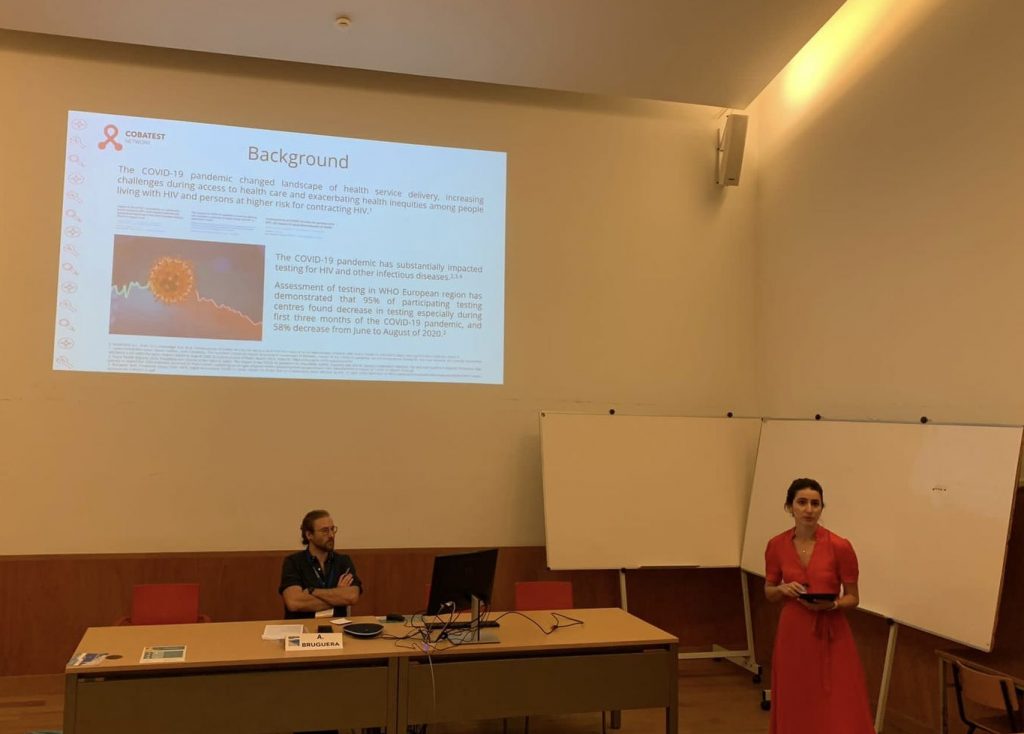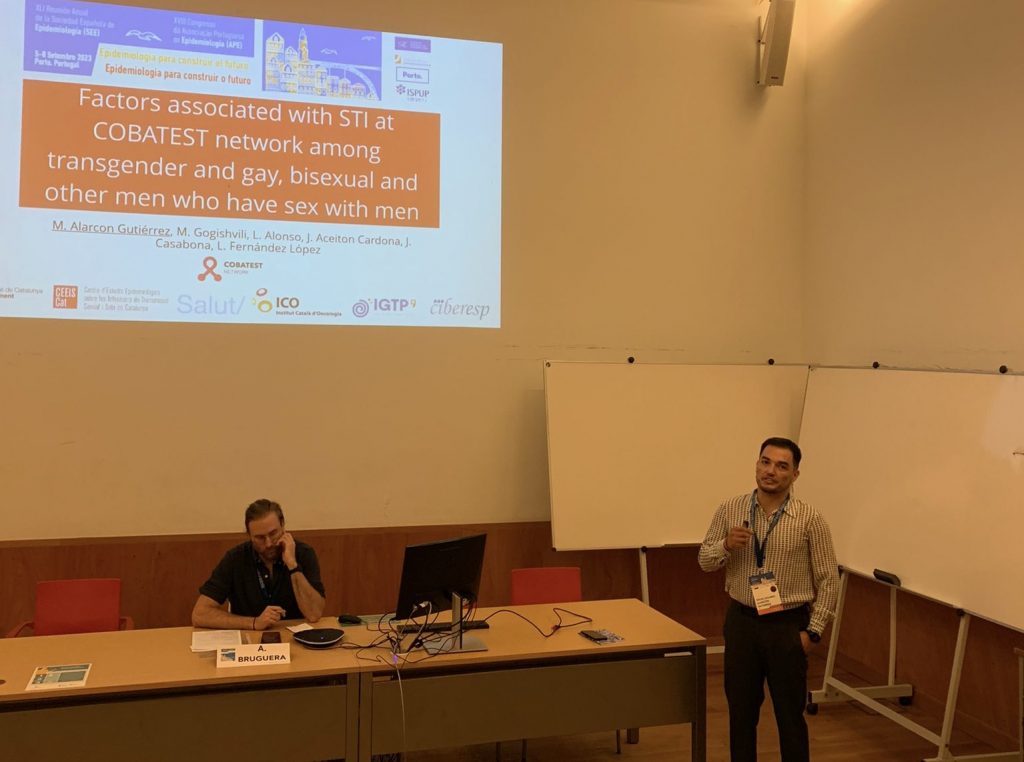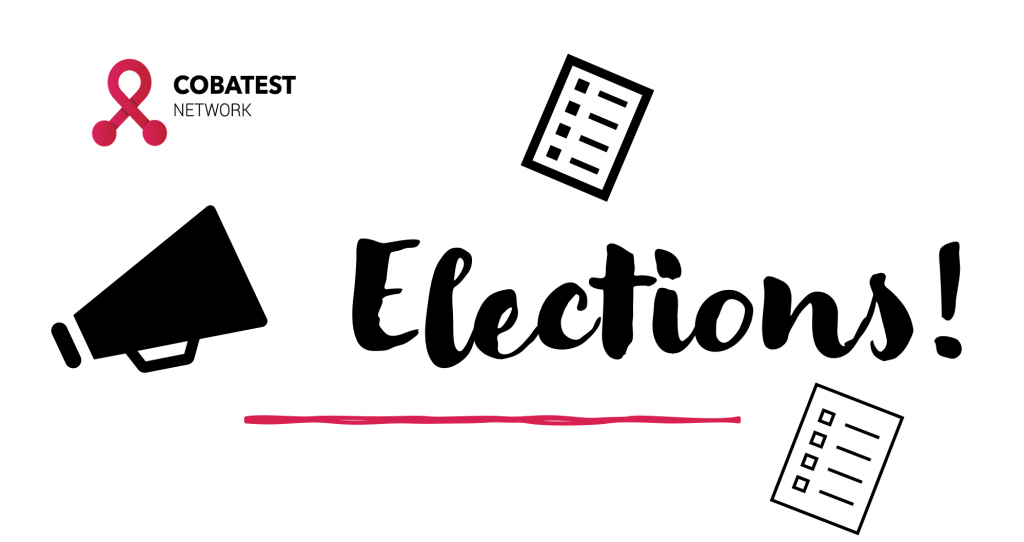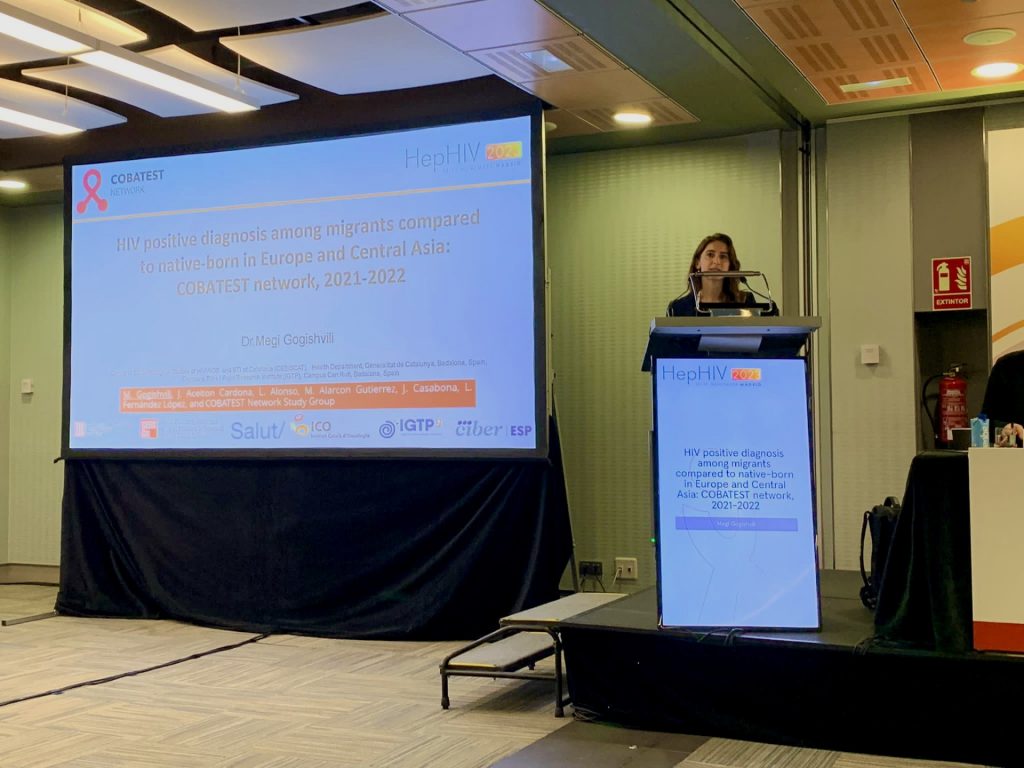
The HepHIV 2023 conference took place from November 13th to 15th, 2023 in Madrid, Spain. Results from three research studies were presented by COBATEST network at the conference.
Dr. Megi Gogishvili presented findings of a study on HIV positive diagnosis among migrants compared to native-born in Europe and Central Asia.
Presentation demonstrated analysis of HIV-testing trends and prevalence of HIV positive diagnosis among migrants in Europe and Central Asia (ECA) compared with native-born individuals in 2021 and 2022. All 62 CBVCTs from COBATEST network who submitted standardized aggregated or disaggregated data in both years were included in the study. As conclusions, we found that migrants in ECA had a higher risk of HIV-positive diagnoses compared to native-born individuals in both years, with increased prevalence ratio in 2022 compared to 2021. We also identified transgender migrants, MSM migrants, and MSM native-born, at higher risk of HIV-positive diagnoses compared with non-MSM, and other sex in case of transgender migrants. Further research performing analysis by migrants’ country of origin and including data from 2023 is needed to assess whether the influx of migrants from Ukraine is straining available HIV-related resources and impacting the health of newly arrived PLHIV. This analysis is of crucial importance and is need to inform future interventions to further guarantee access to HIV care and treatment to all migrants. Please find the full results in the presentation онлайн.
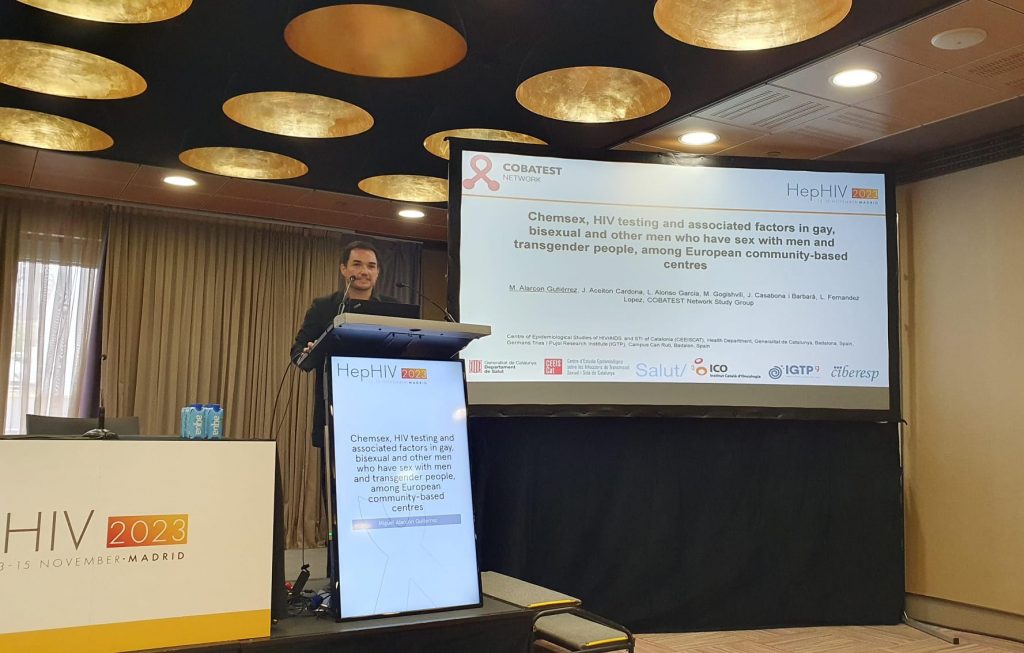
Dr. Miguel Alarcón Gutiérrez presented findings of a study on Chemsex, HIV testing and associated factors in gay, bisexual and other men who have sex with men (GBMSM) and transgender individuals, among European community-based centres.
A presentation consisted of analysis of associated factors with chemsex practice among GBMSM and transgender population who attended community-based voluntary counselling and HIV/STI testing (CBVCT) centres in Europe. We included 31 COBATEST Network CBVCT centres from Belgium, Italy and Spain who submitted chemsex-related questions, between 2019 and 2022. After analysis, we concluded that chemsex is a prevalent practice among GBMSM and transgender people who attend CBVCT centres and it is significantly related to HIV positive testing. Vulnerable subpopulations and specific opportunities were identified to generate interventions oriented to the prevention of chemsex related harms in the CBVCT setting. Please find the full results in the presentation онлайн.

Dr. Laura Fernández López presented a poster with the findings of a study on the assessment of HIV self-testing and self-sampling use and intention to use among COBATEST Network members.
The poster consisted of the analysis of the use of HIV self-testing (HST) and self-sampling (HSS) among COBATEST Network members as part of the project ‘Community Led and Based HIV Services-Key to Ending the HIV Epidemic in Europe and Central Asia “Zeroing In-Ending the HIV Epidemic”‘. An online survey was conducted among COBATEST network members from February to March 2023, covering different aspects related to the use or intention to use of HST/HSS in their services. HSS was less utilized than HST among COBATEST Network members. Legal considerations posed barriers to both methods, and primary reasons for not offering them were concerns about price, follow-up, linkage to care, and concerns about self-administration without counselling. Despite high client interest, ensuring effective follow-up of test results remained a significant challenge. Please find the full results in the poster онлайн.


